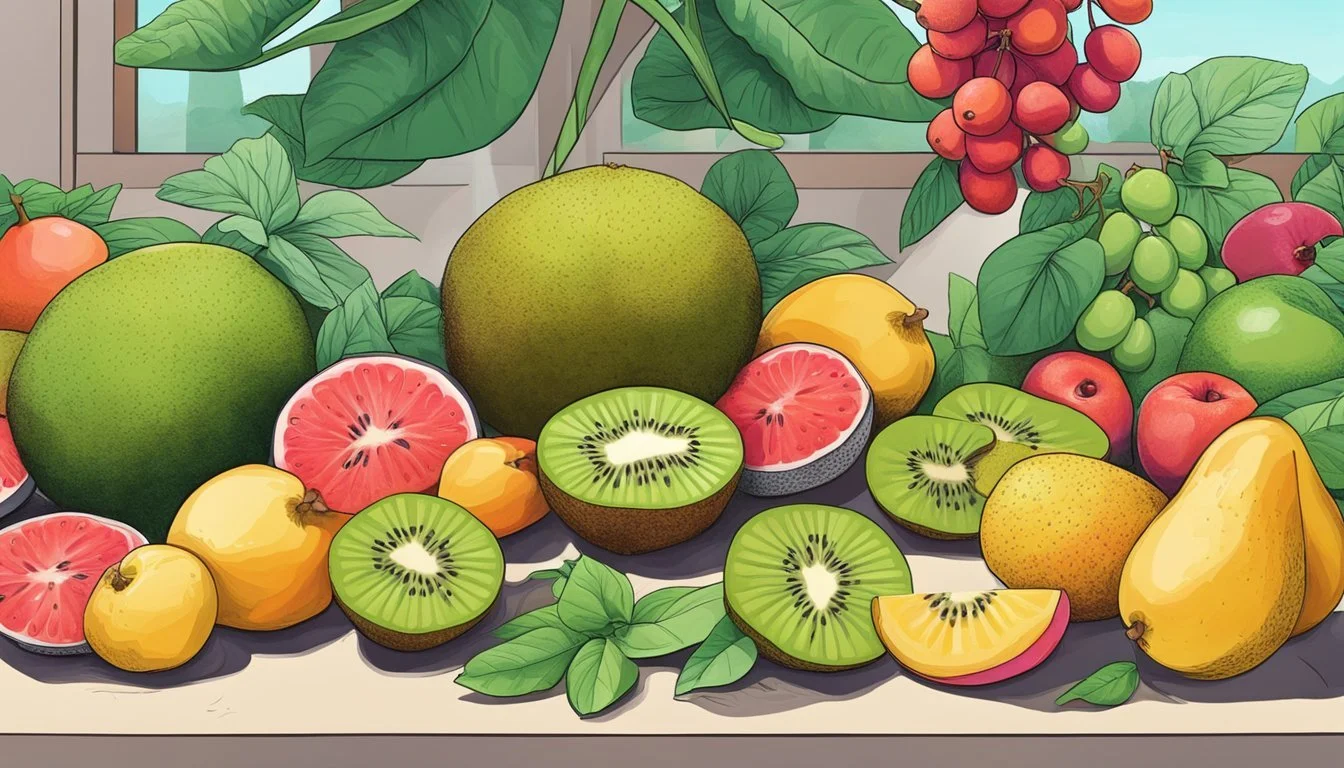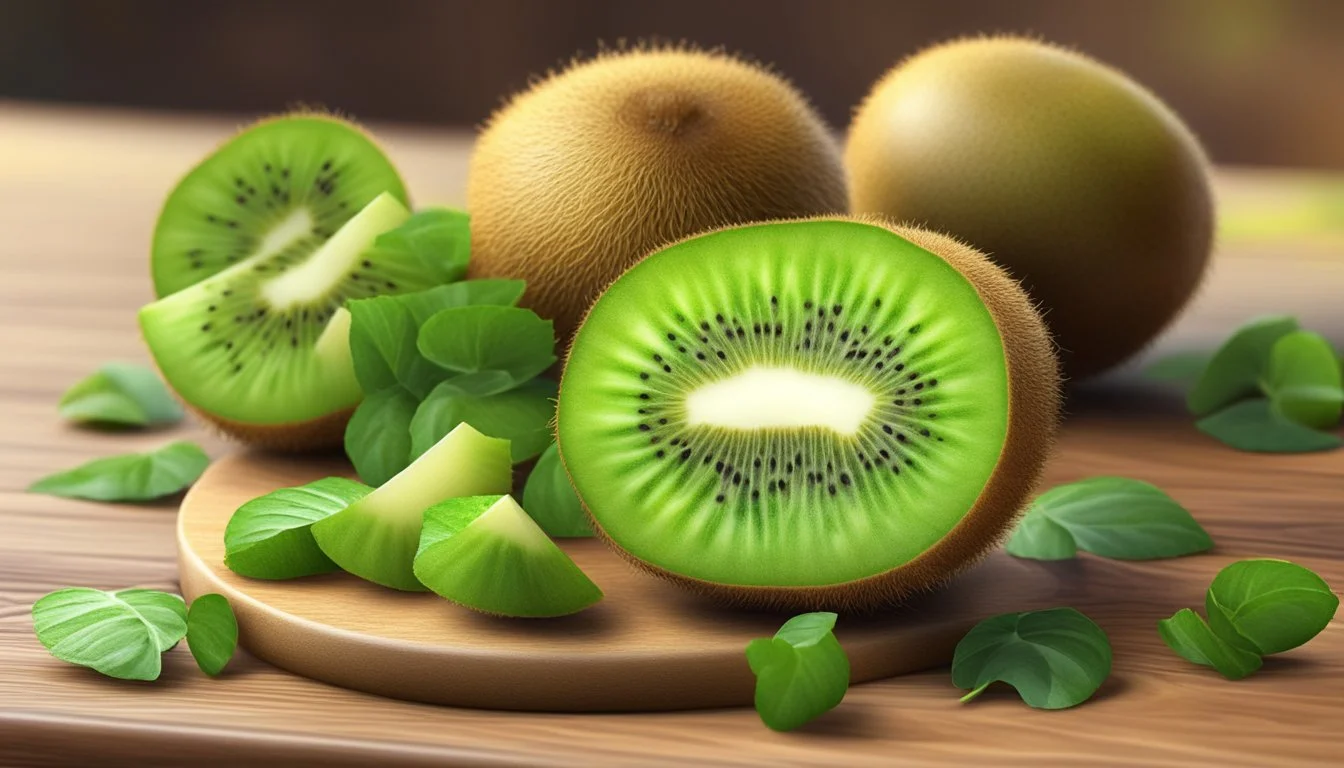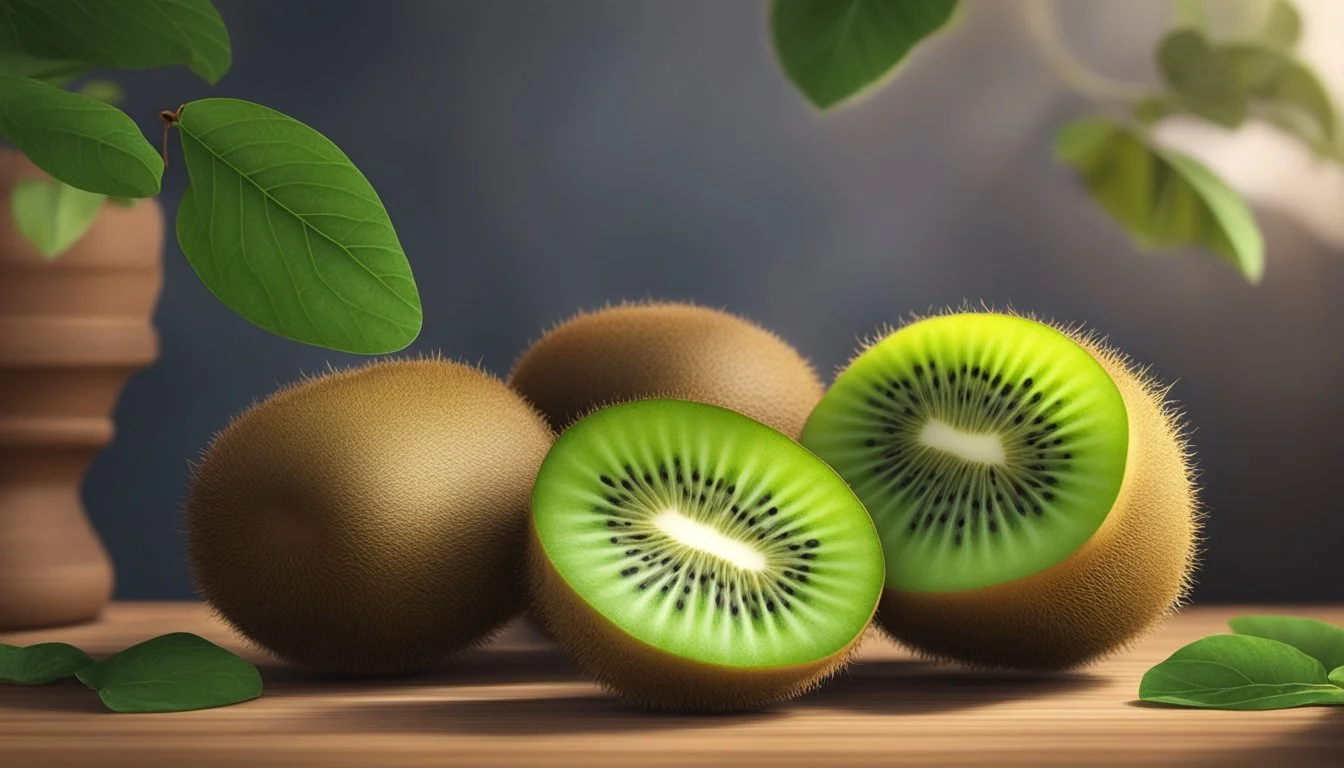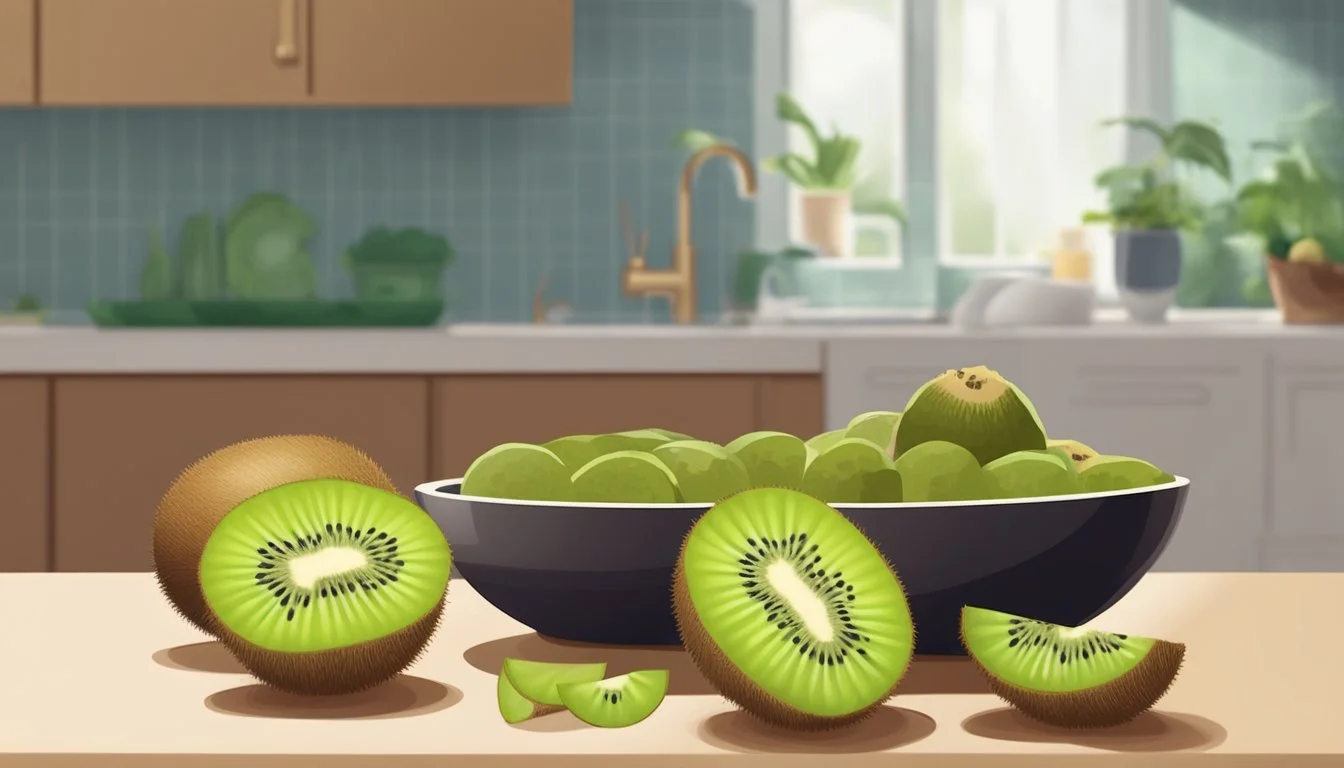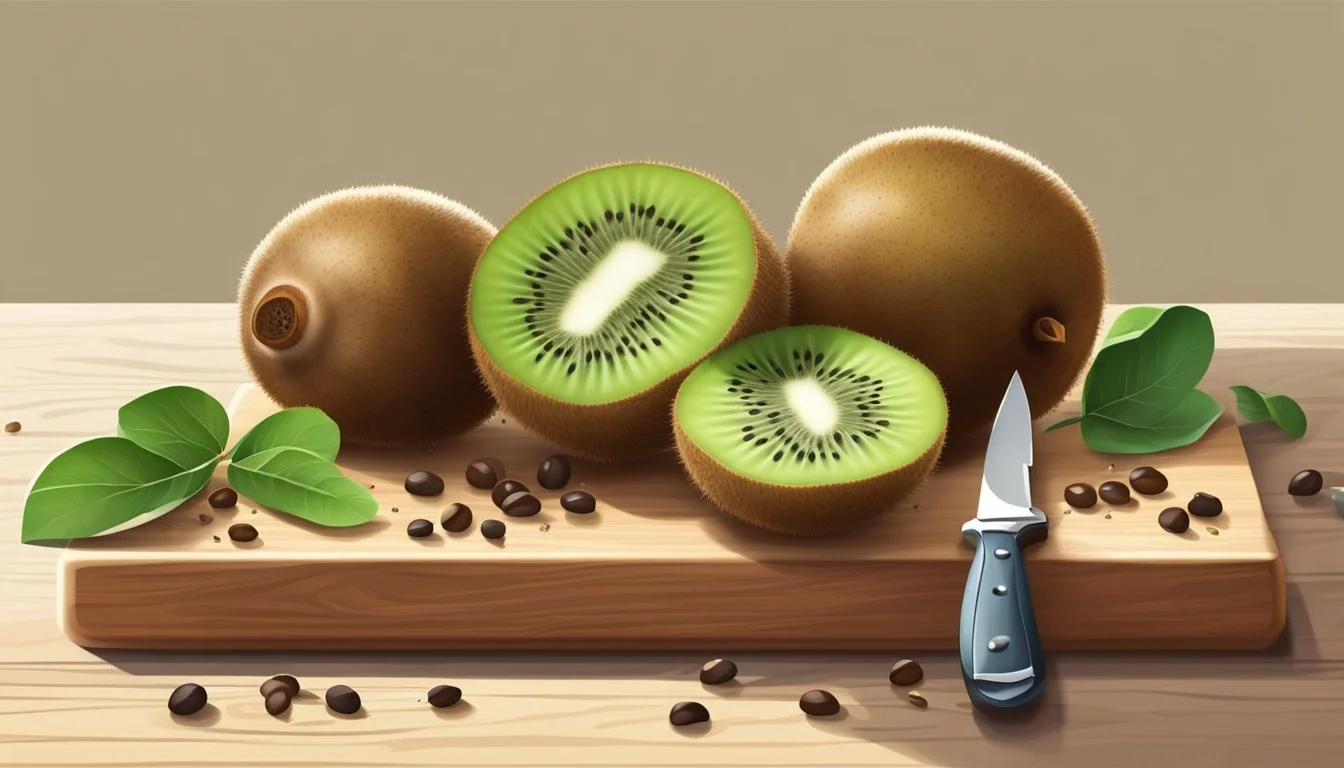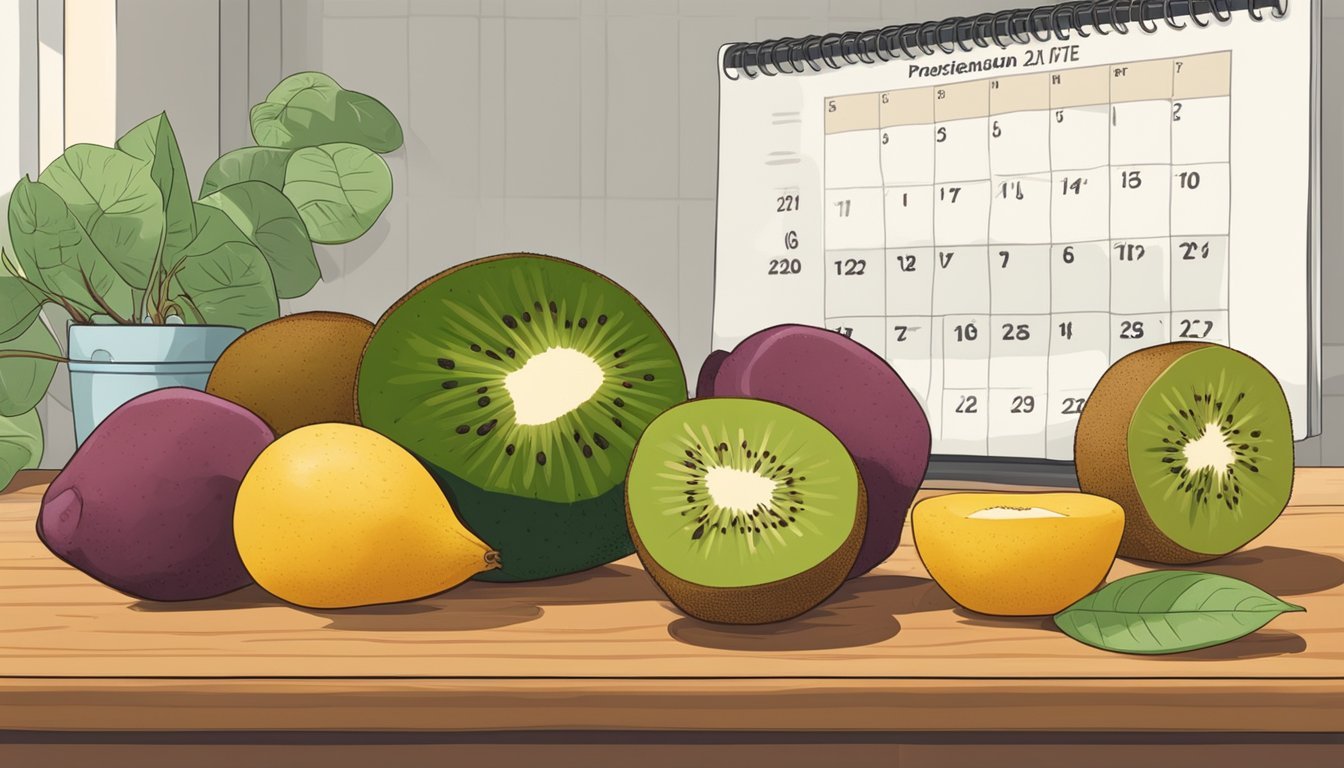How Long Do Kiwi Last?
Shelf Life and Storage Tips
Kiwis are a distinctive fruit known for their tangy yet sweet flavor and fuzzy brown skin. The shelf life of kiwis is a topic of interest for many who enjoy this nutritious fruit. When it comes to determining how long kiwis last, one must consider whether the fruit is ripe or unripe upon purchase or picking. Unripe kiwis can last for 2 to 7 days at room temperature until they ripen. Once ripe, they should be consumed within 3 to 6 days if kept at room temperature.
To extend the freshness of ripe kiwis, storing them in the refrigerator is recommended, which can prolong their shelf life to 2 to 4 weeks. It is crucial to assess kiwis regularly for signs of over-ripeness or spoilage, such as a very soft texture, unpleasant odor, or the presence of mold. To enjoy kiwis beyond this time frame, one can also freeze the fruit. This involves peeling and slicing the kiwis, freezing them on a tray, and then transferring them to an airtight container, where they can be stored for several months.
Understanding the proper storage techniques is key to preserving the quality and nutritional value of kiwis. It ensures that kiwis are enjoyed at their peak taste and texture, whether they are included in fruit salads, smoothies, or eaten on their own.
Understanding Kiwi Freshness
When it comes to kiwi freshness, one must consider both the ripeness of the fruit and the signs that indicate spoilage. The shelf life of kiwis varies based on these factors.
Determining Ripeness
One can determine if a kiwi is ripe by its feel; it should give under gentle pressure but should not be overly soft or mushy. An unripe kiwi typically feels hard and will not have the characteristic sweet aroma. As the fruit ripens, it will gradually soften.
Signs of Spoilage
Kiwi that is going bad often presents obvious signs of spoilage. Some of these include:
Texture: If the fruit feels mushy or extremely soft when gentle pressure is applied, it may be overripe or spoiled.
Dark Spots: The presence of dark spots on the skin can indicate the beginning stages of spoilage.
Off Smell: A kiwi that emits an off smell or an aroma that is sour rather than sweet may have gone bad.
Feel: Aside from softness, a slippery or sticky surface is a tactile indication of a bad kiwi.
These bullet points serve as practical guidelines for assessing the freshness of kiwi.
Optimal Storage Practices
Proper storage can significantly extend the lifespan of kiwi, preserving its freshness and taste. These methods range from room temperature storage for ripening to refrigeration for prolonging freshness and freezing techniques for long-term preservation.
At Room Temperature
Kiwi should be stored at room temperature to ripen if they are not already ripe. One can place kiwis in a brown paper bag to expedite the ripening process; this traps ethylene gas emitted by the fruit, which speeds up ripening. Store kiwis away from other ethylene-producing fruits to avoid over-ripening.
Refrigeration Tips
Once ripe, kiwis can be kept in the refrigerator to slow down the ripening process. They should be placed in the crisper drawer of the refrigerator, where the humidity is slightly higher. To maintain optimal freshness, they may be stored in a plastic bag or an airtight container. Refrigerating kiwi can give them 2 to 4 weeks of shelf life.
Freezing Techniques
Freezing is an excellent method for preserving kiwi over several months. To freeze kiwi, peel and cut them into uniform slices. Next, arrange the slices on a baking sheet lined with parchment paper to prevent sticking. Once the kiwi slices are frozen solid – typically after 2 to 3 hours – transfer them to an airtight container or a plastic bag, making sure to remove as much air as possible to prevent freezer burn. This technique allows one to store kiwi for a significant amount of time.
Maximizing Kiwi Lifespan
To ensure kiwis remain plump and fresh for as long as possible, proper storage methods must be employed. This involves managing ripening processes and understanding the effects of ethylene gas exposure.
Preventing Premature Ripening
Kiwis produce and are sensitive to ethylene gas, a natural plant hormone that accelerates ripening. To prevent premature ripening, kiwis should be stored away from ethylene-producing fruits such as apples, avocados, and tomatoes. Separating kiwis from these fruits will slow down their ripening process, maximizing their lifespan.
Keep in a separate compartment: Store kiwis away from ethylene-producing fruits in the fridge.
Use a fruit bowl: If kept at room temperature, place kiwis in a fruit bowl distant from other fruits to avoid ethylene exposure.
Pairing With Ethylene-Producing Fruits
Conversely, if one wishes to speed up the ripening of kiwis, they can be placed next to ethylene-producing fruits such as apples, tomatoes, and avocados. This technique can be used to bring kiwis to the desired level of ripeness before consumption.
Ripening Method:
In a paper bag: Placing a kiwi with an apple or banana in a closed paper bag at room temperature will hasten ripening.
Handling Cut Kiwi
Once a kiwi is cut, it should be consumed promptly, as its shelf life diminishes quickly. To store cut kiwi, one must ensure it is kept in airtight containers or covered with cling film to prevent exposure to air, which can accelerate spoilage.
Storing Cut Kiwi:
Refrigeration: Store in an airtight container in the refrigerator, where it can last for a few days.
Freezing: For long-term storage, freeze cut kiwi on a parchment-lined tray before transferring to a container, useful for up to three months.
By adhering to these storage practices, the lifespan of kiwis can be effectively managed. Whether aiming to prolong freshness or expedite the ripening process, understanding and controlling exposure to ethylene gas is crucial.
Usage Ideas for Ripe Kiwis
When ripe kiwis reach their peak sweetness and softness, they present a variety of culinary opportunities. From traditional fruit salads to innovative desserts, these vibrant fruits offer both flavor and nutrition.
Culinary Creations
Fruit Salad: Incorporate ripe kiwi slices into a fruit salad to add a bright, tangy flavor and a pop of color.
Dessert Ideas:
Topping for Ice Cream: Kiwi slices make an excellent refreshing topping for ice cream.
Cakes: Ripe kiwi can be pureed and used in cake mixtures or as a decorative and flavorful topping.
Ripe kiwis, with their sweet and slightly tart profile, can be the perfect complement to a variety of desserts. Adding kiwi to cakes or as a garnish can provide a unique and delightful taste, while using them atop ice cream creates a delectable contrast.
Smoothies and Drinks
Smoothies: Blend ripe kiwi with other fruits for a nutritious and tasty smoothie.
Equipment: A blender is necessary for creating a smooth texture.
Frozen Kiwi: Freeze kiwi slices and use them as a colorful and flavorful alternative to ice cubes in drinks.
Ripe kiwis blend smoothly, ensuring they are well suited for smoothies and blended drinks. By freezing kiwi, one also has the option to chill beverages or blend them into an icy smoothie for a refreshing twist.
Buying and Storing in Bulk
Buying kiwis in bulk can be an economical choice, especially if a person is planning to use them in fruit salads or as a healthy snack over time. The key to purchasing kiwis in bulk is to select fruits that will ripen at varying times and to use appropriate storage strategies to extend their freshness.
Selecting Kiwis for Bulk Purchase
When at the grocery store or market, shoppers should look for kiwis that are firm to the touch, as these have a longer shelf life. It's advisable to choose a combination of ripe and unripe kiwis; the ripe ones can be consumed soon, while the unripe ones will gradually ripen. Checking the season and location can help determine the best time to buy kiwis in bulk, as they are freshest during their peak season.
Bulk Storage Strategies
For long-term storage, kiwis can be kept in a cool, dry place, ideally in the fridge. Unripe kiwis can be stored at room temperature until they ripen. To extend their lifespan even further, ripe kiwis can be sliced, placed on a baking sheet lined with parchment paper, and frozen. Once solid, these slices can be transferred to freezer-safe bags or containers, where they can be stored for several months. This method ensures that the kiwis retain their taste and nutritional value for inclusion in smoothies or thawed for fruit salads.
Room Temperature: Unripe kiwis until ripened
Refrigeration: Ripe kiwis for regular use
Freezing: Sliced kiwis for long-term storage
By carefully selecting kiwis and utilizing these storage methods, bulk kiwi can be enjoyed over an extended period while maintaining quality and freshness.
Frequently Asked Questions
This section provides practical answers to common inquiries regarding the shelf life of kiwi fruits, freezing methods, ripeness indicators, and the influence of environmental factors.
Shelf Life of Kiwi Varieties
Kiwi fruits, depending on their variety and ripeness, have varying shelf lives. Typically:
Unripe Kiwi: Can last on the counter at room temperature for about 2 to 7 days. Once ripened, they may remain edible for up to a month in the refrigerator.
Ripe Kiwi: Tends to last for 3 to 6 days at room temperature. If refrigerated, ripe kiwi can be good for 2 to 4 weeks.
How to Freeze Kiwi
One can extend the life of kiwi by freezing them with these steps:
Peel the kiwi fruit.
Cut into uniform slices.
Arrange slices on a parchment paper-lined baking sheet.
Freeze for 2-3 hours until solid.
Transfer to an airtight container for long-term storage.
Identifying Ripe Kiwi
A ripe kiwi should be:
Firm but yields to gentle pressure.
Fragrant with a sweet, fresh scent.
Visible signs of spoilage include an off odor, mold, or a mushy texture.
Effects of Sunlight and Temperature
Kiwi fruits' shelf life is significantly affected by sunlight and temperature:
Direct Sunlight: Can accelerate the ripening process, potentially shortening shelf life.
Room Temperature: Suitable for ripening unripe kiwi fruits.
Refrigeration: Ideal for slowing down ripening and extending the shelf life of ripe kiwi.

